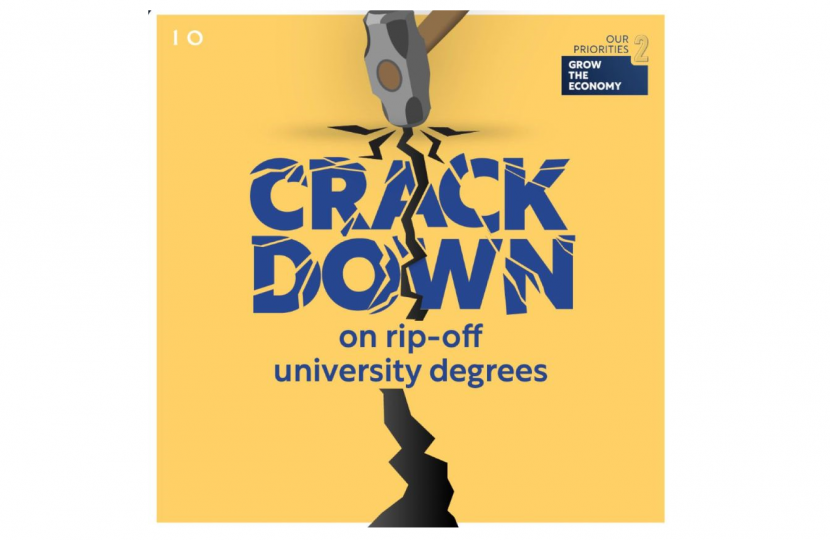
The Prime Minister and Education Secretary recently announced that students and taxpayers will be better protected against rip-off degree courses that have high drop-out rates, don’t lead to good jobs and leave young people with poor pay and high debts. Under new plans, the Office for Students (OfS) will be asked to limit the number of students universities can recruit onto courses that are failing to deliver good outcomes for students.
Figures from the Office for Students show that nearly three in ten graduates do not progress into highly skilled jobs or further study 15 months after graduating. The Institute for Fiscal Studies also estimates that one in five graduates would be better off financially if they hadn’t gone to university.
The UK has some of the world’s leading universities, but a minority of the courses on offer leave students saddled with debt, low earnings and faced with poor job prospects. The government wants to make the system fairer for them, but also for taxpayers – who make a huge investment in higher education and are liable for billions of pounds in unrecovered tuition fees if graduate earnings are low.
Richard Fuller MP said:
Our universities can play a big role in opening up opportunities particularly for young people starting out in the world. But a degree course that fails to deliver on its promises whilst building up debts for young people, clearly needs closer policing.
So I welcome the government's policy initiative as a step forward in protecting the long term interests of students.
The government wants to make sure that universities and colleges are offering the same standard of high-quality provision expected in our schools, and that young people are encouraged to choose the path that is right for them – whether it’s a university degree, a higher technical qualification, or an apprenticeship.
The Office for Students will continue work to make it easier for students to assess the quality of each university course, including its earnings potential, so that they can make the most informed decision about where and what to study. We are asking the Office for Students to ensure that courses which fail to deliver good earnings are subject to stricter controls.
The government has already taken decisive steps to make sure young people and adults can access more high-quality training opportunities. This includes rolling out new T Levels, Higher Technical Qualifications, establishing a network of 21 Institutes of Technology and working with employers of all sizes to create more apprenticeships in a wider range of exciting roles. Plans to expand UCAS to allow students to apply for apprenticeships alongside traditional degree have also been announced so thousands more young people can benefit from a wider choice of high-quality options.
Alongside these new measures to boost the quality of higher education, the government is going further still to support people and employers to take advantage of the wide range of free training options available to them, helping to fill skills gaps, get people into work and support the Prime Minister’s priority of growing the economy. This includes launching a new digital platform from the autumn where people and employers can search for everything from apprenticeships and T Levels to Skills Bootcamps and essential skills courses - all in one place. The government is also making it easier for employers to take on apprentices. This includes by cutting the steps needed to register to take on an apprentice by a third and updating 100 apprenticeships in sectors such as construction and healthcare so they reflect the latest technological advancements and so they work better for employers and apprentices.
